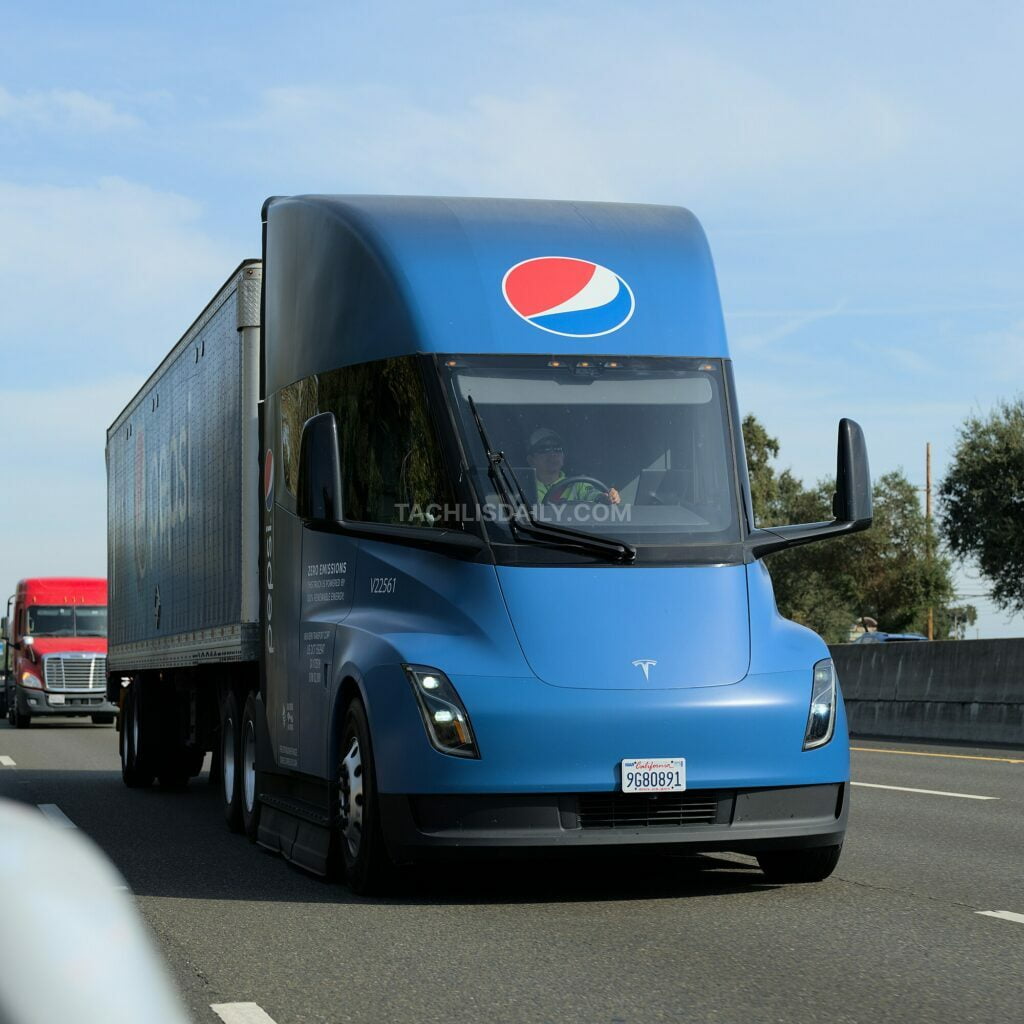Tesla is preparing to significantly increase deliveries of its electric Semi trucks to PepsiCo, its primary customer, ahead of ramping up volume production.
The Tesla Semi, initially unveiled in 2017, faced multiple delays before entering limited production in late 2022. Since then, its deployment has been restricted, primarily to internal use and PepsiCo’s fleet. Recently, other companies like Martin Brower, Sysco, Walmart, and Costco have started testing the vehicle.
Dan Priestley, head of the Tesla Semi program, spoke at the ACT Expo, acknowledging the challenges and delays faced by the Semi. He emphasized Tesla’s commitment to overcoming these obstacles, highlighting the vehicle’s design advantages and operational efficiency compared to diesel trucks.
Priestley noted that Tesla Semi is built on a dedicated electric platform, enhancing efficiency and performance. He mentioned the truck’s 500-mile range and megawatt charging capability, asserting that it allows seamless replacement of diesel trucks in operations. The Pepsico fleet has achieved an average of 1.7 kilowatt hours per mile while carrying heavy loads.
Despite the recent firing of Tesla’s charging team, Priestley reassured that Tesla remains committed to expanding its charging infrastructure. The company plans to invest over $500 million in new supercharger stations this year and extend similar efforts to support heavy-duty trucks with Megachargers.
Looking ahead, Tesla plans to deliver an additional 50 Semi trucks to PepsiCo before the production ramp-up. Broader customer deliveries are anticipated to begin in 2026, nearly a decade after the truck’s initial unveiling.











